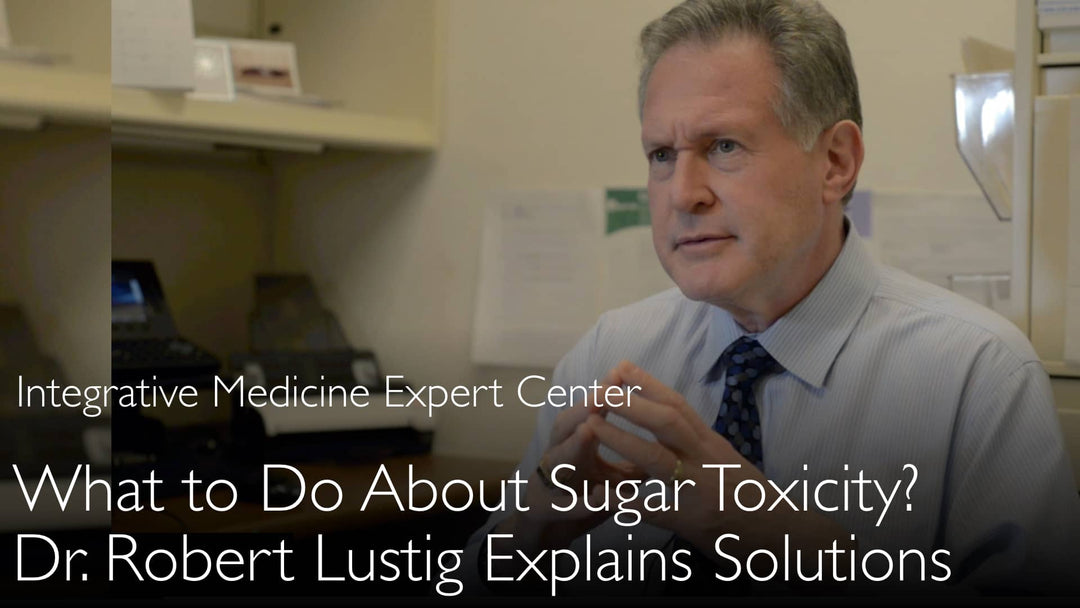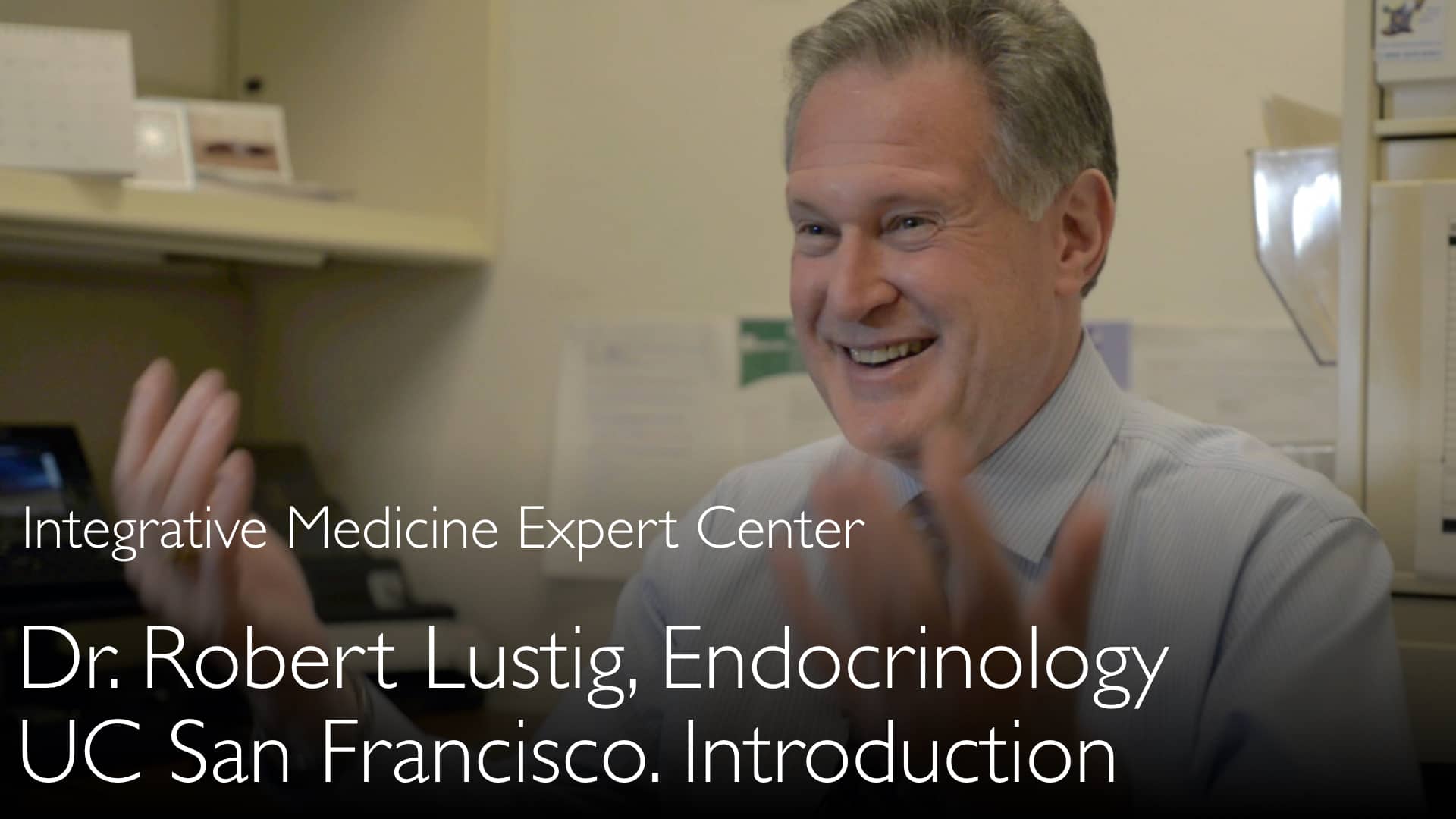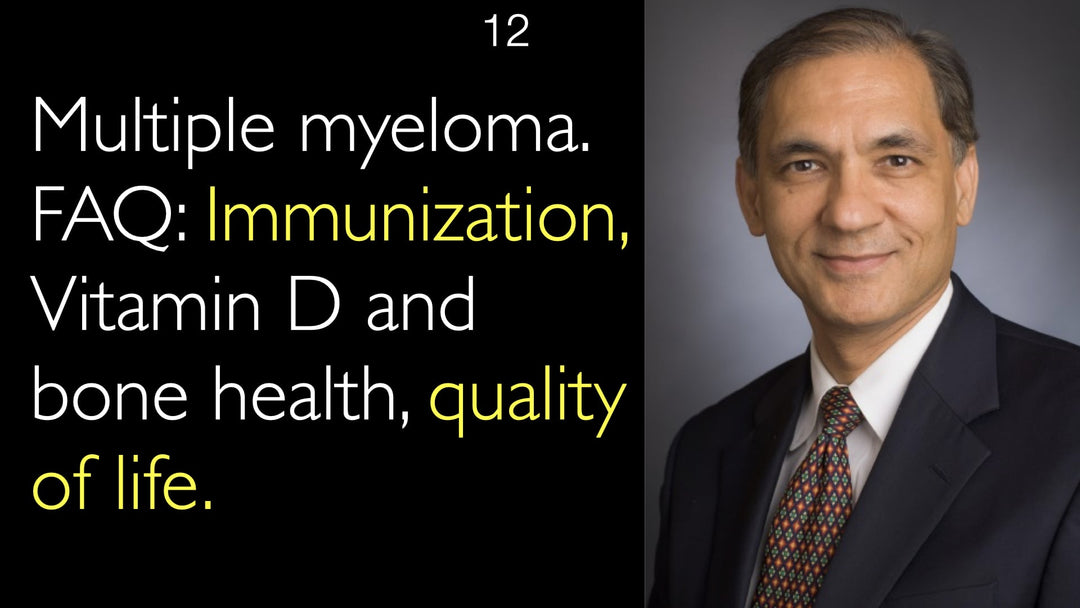Leading expert in nutrition and endocrinology, Dr. Robert Lustig, MD, explains how the food industry's deliberate addition of excess sugar to processed foods is a primary driver of chronic metabolic diseases like diabetes, heart disease, and cancer. He argues that 75% of healthcare costs, amounting to trillions of dollars, are spent on preventable conditions linked to poor diet. Dr. Lustig calls for urgent policy changes to remove fructose from the "generally recognized as safe" list and to fundamentally shift the food business model to reward quality over quantity, thereby improving public health and averting a fiscal crisis in healthcare systems.
The Bitter Truth: How Sugar Addiction in Processed Food Drives Chronic Disease
Jump To Section
- Sugar Addiction and Chronic Disease Link
- The Flawed Food Industry Business Model
- The Staggering Healthcare Costs Crisis
- The Case for Fructose Safety Reclassification
- Policy Solutions for Real Food Access
- Full Transcript
Sugar Addiction and Chronic Disease Link
Dr. Robert Lustig, MD, presents a stark analysis of the modern food environment, identifying processed foods laden with added sugar as a primary cause of metabolic syndrome. He explains that the food industry deliberately engineers products with excessive sugar to enhance palatability and consumption, creating a public health crisis. This practice, according to Dr. Lustig, directly fuels the epidemics of diabetes, heart disease, cancer, and Alzheimer's disease, making the food industry a major contributor to preventable chronic illness.
The Flawed Food Industry Business Model
Dr. Robert Lustig, MD, critiques the core incentive structure of the food industry, which he states is designed for profit, not health. He reveals that the industry's revenue in the US is one trillion dollars annually, but its current model prioritizes quantity and cheap production over nutritional quality. Dr. Lustig argues that this system, solidified by US agricultural policy shifts in the 1970s aimed at making food cheap to avoid political unrest, now causes a different kind of unrest through poor population health. The fundamental change needed, he insists, is to reward the food industry for producing high-quality, nutritious food instead of merely vast quantities of empty calories.
The Staggering Healthcare Costs Crisis
The financial burden of this dietary crisis is monumental. Dr. Robert Lustig, MD, provides critical data: the US healthcare system spends $2.7 trillion per year, and a full 75% of that is dedicated to treating chronic metabolic diseases. This translates to approximately $1.4 trillion in annual costs that Dr. Lustig asserts are largely avoidable through better nutrition. He warns interviewer Dr. Anton Titov, MD, that this unsustainable trajectory will bankrupt Medicare by 2026 if no action is taken. Dr. Lustig frames the choice starkly: society can pay for better food now or pay vastly more for disease treatment later.
The Case for Fructose Safety Reclassification
A central policy proposal from Dr. Robert Lustig, MD, involves reclassifying a specific component of sugar. He identifies fructose, a sweet molecule, as particularly problematic when consumed in the quantities now present in the modern processed food diet. Historically, sugar was a condiment used sparingly, amounting to just 2-3 teaspoons per day. Dr. Lustig argues that its current ubiquity has turned it into a toxin. His key recommendation is to remove fructose from the FDA's "Generally Recognized As Safe" (GRAS) list, which would force the food industry to prove its safety and likely lead to a significant reduction in its use.
Policy Solutions for Real Food Access
Beyond regulating fructose, Dr. Robert Lustig, MD, calls for a comprehensive overhaul of food policy to prioritize public health. He emphasizes the need for a system that provides "real food" instead of processed food products. This involves changing laws that currently grant the food industry "complete impunity" to add anything they want to food without consequence. During his discussion with Dr. Anton Titov, MD, Dr. Lustig makes a compelling moral argument, noting that while everyone else—patients, families, communities, and the healthcare system—suffers from diet-related disease, the food industry profits. He advocates for a new relationship with the food industry, one where health outcomes are valued alongside financial gain.
Full Transcript
Dr. Anton Titov, MD: Food industry’s sugar addiction is obvious. Why are 75% of chronic disease treatment costs avoidable?
Prominent nutrition expert and endocrinologist Dr. Robert Lustig, MD, talks about food industry sugar addiction. What can we do about sugar addiction? Food industry sugar addiction cannot be tolerated. The food industry deliberately creates sugar excess in our food.
New food industry policies are needed to combat diabetes, heart disease, cancer, and Alzheimer's disease. The science of addictive junk food is used by the food industry to kill people. Food industry sugar addiction is accepted by many doctors now.
The sugar addiction taboo has to be broken by public stance. Processed foods are slowly killing people via metabolic syndrome, diabetes, heart disease, and cancer. This is how the food industry fools us: it adds excess sugar to most commercially produced foods.
This is the bitter truth about sugar. Therefore, we have to declare war on sugar excess consumption. The food industry is now the new big tobacco.
Medical second opinion confirms that food allergy diagnosis is correct and complete. Medical second opinion also confirms that food allergy treatment is required. Medical second opinion helps to choose the best treatment for food allergy.
Food industry sugar addiction is here to stay as long as we continue to tolerate it. Get a medical second opinion on food allergy and be confident that your treatment is the best.
Dr. Robert Lustig, MD: What should be done about the problem of sugar toxicity? We need a policy that provides real food, not processed food. We have to change the food business model.
Ultimately, the food industry doesn't care what they sell, just as long as they sell. They told me so. It's only about the money. They would sell anything as long as it is sold.
The question is, how do we compensate the food industry for its produce? At the same time, how do we keep the population healthy? The answer is this: you have to change the food business model.
You have to reward the food industry for quality rather than quantity. Right now it's the other way around. The food industry is rewarded for quantity of food they produce.
It is true since 1971. Then the rules changed for the farmers here in the United States. Our government basically told them: "Row to row, furrow to furrow. Get big or get out."
This was a specific and designed effort to make food cheap because fluctuating food prices cause political unrest. That is the truth everywhere in the world. But this also causes unrest of a different kind.
Ultimately, we have to find a happy medium between our food and our health. Right now we don't have it. The food industry can play a major role in solving this problem, but they have to want to solve this problem.
Right now they don't want to play such role because there's a lot of money involved in keeping everything as it is now. But here is a way to look at it, at least from an American standpoint.
The food industry has revenue of one trillion dollars per year in the US. Health care costs us 2.7 trillion dollars per year. 75% of all healthcare costs are chronic metabolic diseases, for example, diabetes, heart disease, cancer, Alzheimer's disease, et cetera.
75% of all costs of treating those chronic diseases can be recouped. We could solve this problem. That's 1.4 trillion dollars that disappears from the entire US budget.
This is the amount of money we lose each year in health care costs. It is greater than total amount of annual revenue for the US food industry. Net profit is much less.
This is unsustainable. This is why in the U.S., Medicare, government-run healthcare for retired people, will be broke by the year 2026.
Dr. Anton Titov, MD: I assume we will do nothing to improve it.
Dr. Robert Lustig, MD: Ultimately, you can pay for better food now, or you can pay for the health care costs later. But ultimately this is going to find you. It is better to be smart early rather than to be dumb late.
This is a sobering truth. That's only monetary value of this problem. There is also a huge moral burden. There is also a lot of suffering of people with all those diseases.
There is suffering of their families. Absolutely everyone suffers. You suffer, your family suffers, your community suffers, the health care system suffers. The only people who don't suffer is the food industry.
To me that's not a good deal. That is not a good deal. In addition, we need a completely new relationship with the food industry.
Right now they can put anything they want in any food they want. Food industry has a complete impunity. Is that acceptable? Does that cause problems?
The answer is this: absolutely it does cause problems. But right now the laws allow this to happen. We need to re-think and re-make the laws.
My personal feeling is this: there is method to accomplish most of this goal. We have to remove the compound called “fructose" from the "generally recognized as safe” list.
Fructose is a sweet molecule of sugar. Previously, sugar was a condiment; one or two teaspoons were added to your coffee or tea. That was the only place you had sugar in your diet.
That was it. That was all you had. Then there was no problem. You ate 2 or 3 teaspoons of sugar per day and there were no problems.
Reward food industry for quality not quantity. Remove fructose from safe substance list.








